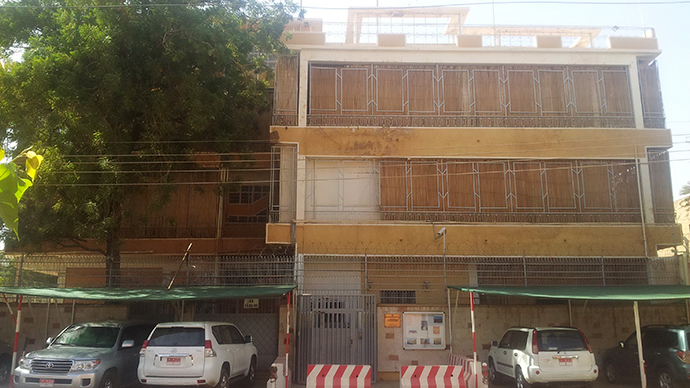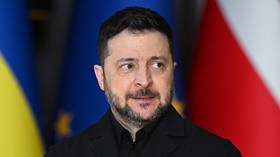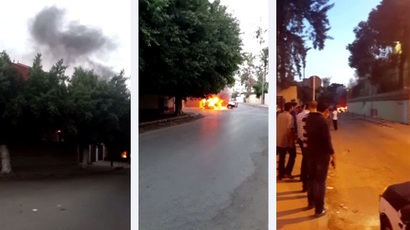Russian diplomat, wife stabbed in Sudan

Russia’s consul and his wife have been stabbed in Sudan's capital of Khartoum outside the embassy’s gates by a man from the Central African Republic.
The Russian Foreign Ministry has confirmed the incident to RT, specifying that the injured diplomat was Russia’s consul and not consul general as was reported by the media earlier. The names of the diplomat and his wife have not yet been made public by the police or Russian officials.
The attack is believed to be a random act of revenge against a Westerner by a man whose brother was killed by European troops in the CAR.
“Investigation showed that his brother was killed this morning in Bangui,” the CAR capital’s police said in a statement. "According to police investigation, the suspect came to Sudan for medical reasons and had no reason to carry out this crime except to get revenge for his brother."
Following the attack the couple was rushed to the hospital with non-life threatening injuries.
Russia's chargé d'affaires in Khartoum, Yury Vidakas, has confirmed the stabbing of his colleague and his spouse but said they had already been discharged from the hospital and were at home under the supervision of the embassy’s medic.
Vidakas also said that security measures at the embassy have been strengthened. “Embassy employees’ access to city has been limited while we are working with law enforcement agencies to double-check everything,” Vidakas told RIA Novosti.
The assailant was detained by embassy guards and passers-by, AFP reports. The attacker wounded the consul and his wife, mistakenly believing they were from a nation that had sent troops to his home country, police said in a statement.
Last week, the European Union agreed to send an additional 600 troops to support the African Union’s contingent of 3,500 troops and 1,600 French soldiers already engaged in the CAR. Russia, however, has no troops on the ground in Central African Republic.
On Tuesday, the UN Security Council extended the mandate of the United Nations peacekeeping mission in the nation and authorized the use of force by European Union troops. The UNSC also added travel bans and asset freezes to an arms embargo already in place. Back in December 2013, the Council imposed a year-long embargo on the supply of arms, military equipment and related assistance to non-state actors in the CAR.
The African Union's stabilization force, known as MISCA, is expected to be turned into a UN peacekeeping force this year. The UN estimates at least 10,000 troops will be needed to restore order, France's UN ambassador said following the latest UN Security Council meeting. Poland, Belgium, Estonia and Spain may also contribute troops to the EU force.
The UN also voiced concern about the increased brutality against children ,saying that “youngsters are maimed, killed and beheaded, and amid rampant sexual violence,” and urged the international community to use “all the tools at its disposal” to stop the conflict.
The Council also urged the Central African Republic's interim government to speed up election preparations. A transitional accord between rival groups has set a deadline of February, 2015 for elections, but the UN says polls should be held in the second half of 2014 if possible.
Violence in the CAR erupted in March of last year following the ouster of the country’s president by the Muslim rebel group, Seleka, backed by mercenary forces from Chad and Sudan. The country’s interim government, installed after the coup, lost control of the country and has failed to halt violence between its Christian and Muslim communities, which according to UN estimates claimed thousands of lives with some 900,000 people fleeing their homes.














